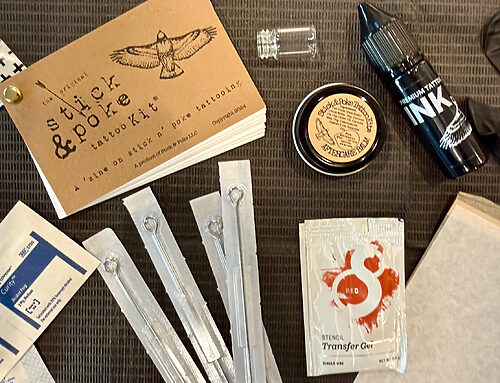A story posted by CNN describes a study conducted in the American Samoa by Michaela Howells and Christopher Lynn indicates that the practice of tattooing creates an enhanced immune response. The implications are great! Tattoos could be a major part of the evolution of humans – as tattoos may have played a role in who survived and who died. We pasted the study summary and the link below.
If having a tattoo helped a human survive an injury later, then it is no wonder why every continent has had indigenous people that practice tattooing. It is counter intuitive to think that tattoos were useful for health, because back then it was a somewhat risky thing to do before modern medicine, sterilization and sanitation. Tattoos can be dangerous, if not done safely, or cared for properly. We have many articles on that topic for a reason! For example, In 2017, a man swam in the gulf of Mexico just 5 days after getting a tattoo on the leg. He later died from from a bacterial infection that entered his body through his unhealed tattoo.
Read more about tattoo aftercare here. Just a note that if you are thinking of getting a tattoo from a different culture than your own, to please read this first.
STUDY SUMMARY
Abstract
Objectives:
We tested this habituation effect of tattooing in American Samoa, where its practice
is common and extensive and infectious disease rates high. We hypothesized that people with
more tattoo experience would have enhanced immune response related to the stress of being
tattooed. We compared total and rate of tattoo experience to determine if tattooing is more






